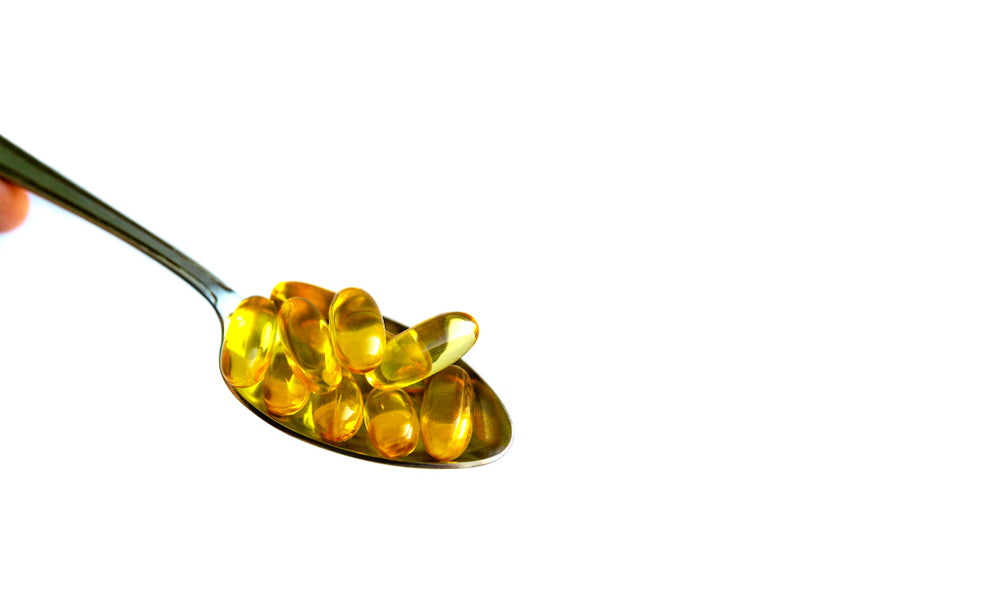
Using Fish Oil As A Gym Supplement & Fish Oil Benefits
In 2023, many gym goers use supplements to boost energy, increase muscle mass and improve strength. One of the most popular supplements used today is fish oil. It provides several benefits, which has caused it to grow in popularity over recent years.. In this blog post, we’re taking a look at what fish oil is, and its benefits for bodybuilders and daily dosage recommendations. So if you were looking for the answer to the question ‘What is fish oil good for’, then keep reading to find out.
What is Fish Oil?
Fish oil is extracted from the tissue of fatty fish and is rich in omega-3 fatty acids. It can be taken naturally through eating fish, such as tuna, herring, salmon and, cod liver. However, this would require a diet heavy in fish, which for a large population is not accessible, due to dietary preferences and the cost of some cuts of fish. As such, a lot of people opt for supplementation.
Key Benefits Of Taking Fish Oils For Gym Performance
Omega-3 fish oils provide multiple benefits:
- Aids Recovery
- Combats Muscle Decline
- Supports Joint Health
- Aids Circulatory Performance
Aids Recovery
Fish oil supplementation is extremely popular for gymgoers across the globe due to its anti-inflammatory properties, which can benefit exercise recovery (Source).
It is common for people to experience delayed onset of muscle soreness (DOMS) between 12-72 hours following a particularly strenuous gym session, due to muscle cell inflammation. This causes aches and soreness. Fish oils help reduce imflamation and reduce the experienced DOMS (Source)
Combatting Muscle Decline
Studies have found that fish oil supplementation supports in maintaining muscle strength whilst on a calorie deficit, which may be important during a cutting diet (Source).
Furthermore, with aging, you also see a decline in muscle mass. Alongside this, the decreased response to protein intake and resistance training due to age makes it increasingly difficult to maintain and build muscle mass.
Studies have shown that Omega-3 supplementation, specifically its anti-inflammatory properties, could improve your muscle sensitivity to protein and resistance training. In turn, this will support the maintenance and growth of muscle mass during aging(Source 1 & Source 2).
How To Maximise The Benefits Of Fish Oils
If you decide to use fish oil supplementation, the recommended amount for bodybuilders is 2,000–3,000 mg per day of EPA and DHA. However the EPA and DHA contents may vary within the supplements. Ensure that you read and understand the nutrition label and serving size carefully before consuming.
Thankfully this supplement is very versatile. It is recommended to take it with a meal, for better absorption. But the time of day you take it does not impact its effects. Additionally, it does not impact, nor is it impacted by other supplements you might be taking, such as creatine, protein, etc.
Are There Any Potential Side Effects?
Omega-3 fish oils are generally deemed safe, but there are some (usually mild) effects that can occur.
It is important for those on blood thinning medication to consult with a doctor prior to taking this supplement.
Summary
Fish oil is high in omega-3 fats DHA and EPA, which have anti-inflammatory properties. Overall, it is a relatively safe supplement to consume and the recommended amount of fish oil bodybuilders should take is 2,000–3,000 mg per day of EPA and DHA.
There are several possible benefits of omega-3 fish oil for gymgoers, such as a reduction in DOMS and muscle soreness. This can enhance other health factors, improving your heart and blood health.
If you are a gymgoer interested in making the most of your workouts, get in touch with Exersci today. We sell a wide range of gym equipment and gym accessories designed with your comfort and safety in mind.







